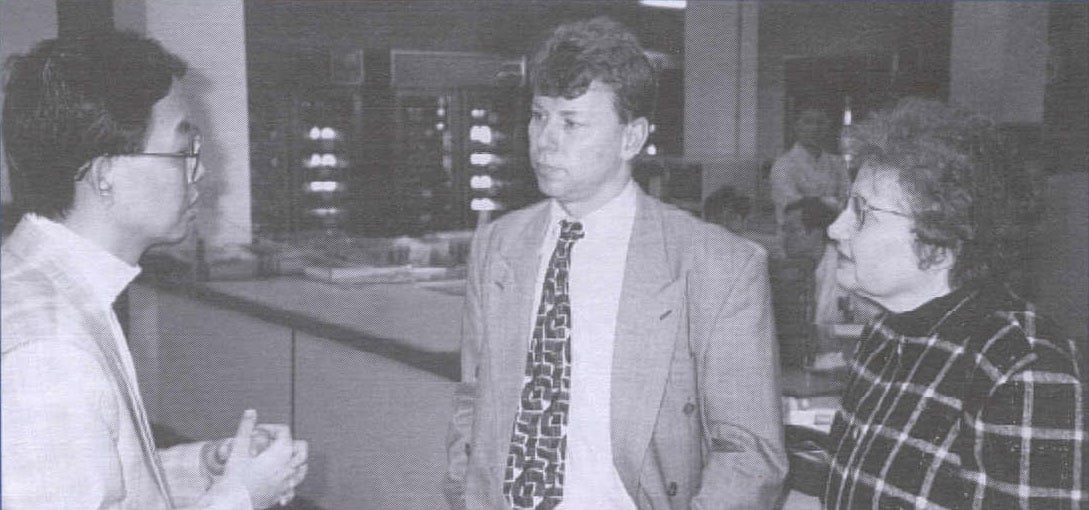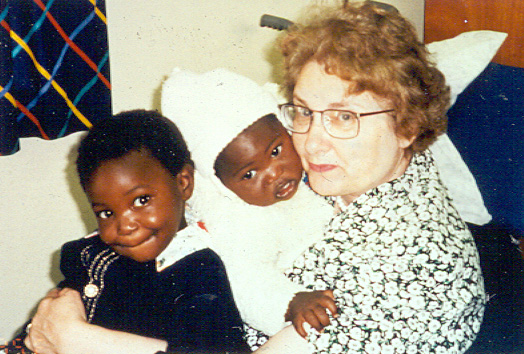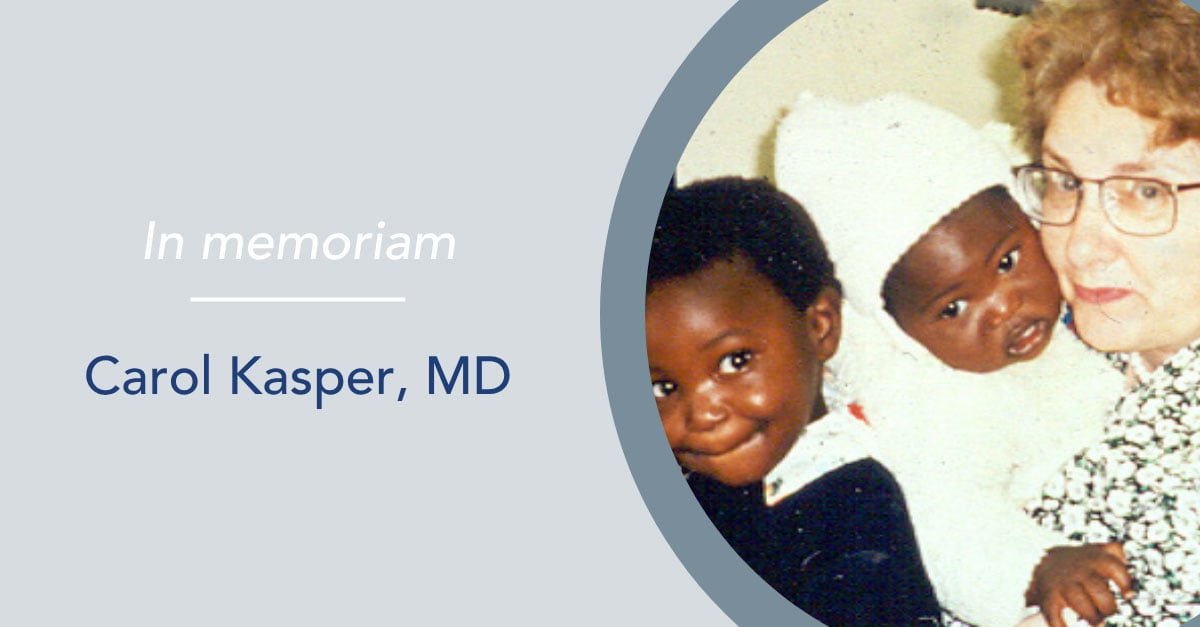Kasper was a vital force in shaping the work and mission of the World Federation of Hemophilia (WFH). As Vice President, Medical, of the WFH in the 1990s, she played a pivotal role during a transformative era—guiding strategy, expanding global programs, and deepening the organization’s commitment to care and access for all. Her impact is embedded not just in WFH programs and publications, but in the very spirit of the WFH’s vision of Treatment for All.
The following tribute to Carol Kasper was written by Brian O’Mahony, Chief Executive of the Irish Haemophilia Society, and a former President of both the WFH and the European Haemophilia Consortium.
Doctor Carol Kasper, who passed away this week at the age of 89, made an enormous contribution to hemophilia and inherited bleeding disorders. For many years. Carol was a renowned hematologist and Director of the hemophilia service at Orthopaedic Hospital, in Los Angeles, U.S.A. She did groundbreaking work on the diagnosis of hemophilia, and the genetics of hemophilia and inhibitors. She published many peer-reviewed papers, and was a very well-respected researcher. Carol also served as Vice President of the National Hemophilia Foundation—now the National Bleeding Disorders Foundation (NBDF).
Carol had a gift for making difficult scientific or clinical information accessible. For many years until the early 2000’s, she published her own personal hemophilia bulletin in which she would summarize the presentations and science at major meetings and conferences. It was regarded by many people, including me, as the best publication in the field at that time. The only action more conducive to learning that attending a meeting was reading Carol’s summary of the same meeting.
I had the great pleasure to work closely with Carol for six years from 1994 to 2000 when she was Vice President, Medical at the WFH. She was an absolute pleasure to work with. She had great knowledge which she shared readily. She was also very kind and empathetic, and, on several occasions, I saw her gently assist people to improve their practice or laboratory work without any hint of superiority.
She genuinely loved meeting people and helping them in their work if she could and this was very evident in her modest friendly manner. She took particular pleasure in identifying young up and coming clinicians or health care professionals and she would send me frequent missives on new people who should be encouraged or mentored.
Her lack of ego was evident in 1996 when, as she celebrated her 60th birthday, she refused offers to sponsor a dinner in her honour and instead secured funding for a region 9 workshop for the U.S.A, which was an underserved region at that time.
She contributed very significantly to the programs, activities and strategic direction of the WFH in the 1990s as the organization set a new course in global development. Carol was also great fun to travel and work with and she possessed a sharp and observant sense of humour.
Her work, her warm personality and her kindness contributed greatly to WFH and to the lives of many people with hemophilia—most of whom have never met her or heard of her. She will not be forgotten by a grateful global community.
Our sincere sympathy goes to her husband Howard and her family and friends.
—Brian O’Mahony, Chief Executive, Irish Haemophilia Society
On behalf of the global bleeding disorders community, the WFH would like to express its deepest sympathies to Doctor Carol Kasper’s family, friends, and colleagues.














